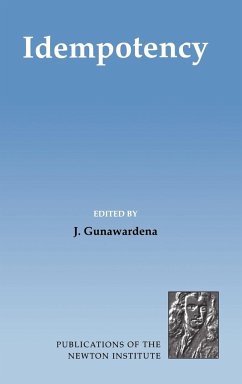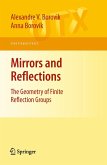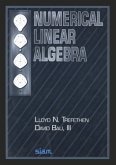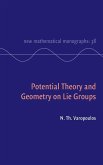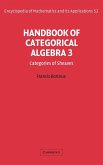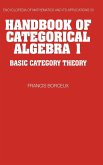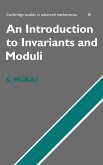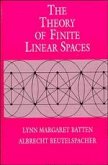Certain nonlinear optimisation problems arising in such disparate areas as the theory of computation, pure and applied probability and mathematical physics, can be solved by linear methods, provided one replaces the usual number system with one in which addition satisfies the idempotent law. Only recently has a systematic study of the subject emerged, triggered in part by a workshop organised by Hewlett-Packard's Basic Research Institute in the Mathematical Sciences (BRIMS), which brought together for the first time many leading researchers in the area. This volume is a record of that workshop, but it also includes other invited contributions, a broad Introduction to Idempotency, written specially for the book, and a bibliography of the subject. In sum, this is the most up-to-date survey currently available of research in this developing area of mathematics; the articles cover both practical and more theoretical considerations, making it essential reading for all workers in the area.
Table of contents:
An introduction to idempotency J. Gunawardena; 1. Tropical semirings J.-E. Pin; 2. Some automata-theoretic aspects of min-max-plus semirings D. Krob; 3. The finite power property for rational sets of free groups F. d'Alessandro and J. Sakarovitch; 4. The topological approach to the limitedness problem on distance automata H. Leung; 5. Types and dynamics in partially additive categories G. Mascari and M. Pedicini; 6. Task resource models and (max,+) automata S. Gaubert and J. Mairesse; 7. Algebraic system analysis of timed Petri nets G. Cohen, S. Gaubert and J.-P. Quadrat; 8. Ergodic theorems for stochastic operators and discrete event systems F. Baccelli and J. Mairesse; 9. Computational issues in recursive stochastic systems B. Gaujal and A. Jean-Marie; 10. Periodic points of nonexpansive maps R. D. Nussbaum; 11. A system-theoretic approach for discrete-event control of manufacturing systems A. Gürel, O. C. Pastravanu and F. L. Lewis; 12. Idempotent structures in the supervisory control of discrete event systems D. D. Cofer and V. K. Garg; 13. Maxpolynomials and discrete-event dynamic systems R. Cuninghame-Green; 14. Stochastic HJB equation and WKB method V. N. Kolokoltsov; 15. Lagrange problem from the point of view of idempotent analysis S. Samborskii; 16. New differential equation for the dynamics of the Pareto sets V. N. Kolokoltsov and V. P. Maslov; 17. Duality between probability and optimization M. Akian, J.-P. Quadrat and M. Viot; 18. Maslov optimisation theory: topological aspects P. Del Moral; 19. Random particle methods in (max,+) optimization problems P. Del Moral and G. Salut; 20. The geometry of finite dimensional pseudomodules E. Wagneur; 21. A general linear max-plus solution technique E. A. Walkup and G. Borriello; 22. Axiomatics of thermodynamics and idempotent analysis V. P. Maslov; 23. Correspondence principle for idempotent calculus and some computer applications G. L. Litvinov and V. P. Maslov.
A record of a workshop organised by Hewlett-Packard's Basic Research Institute in the Mathematical Sciences, which brought together for the first time many leading researchers in the subject. It is the most up-to-date survey of this developing area of mathematics; the articles cover both practical and more theoretical considerations, making it essential reading for all workers in the area.
The most up-to-date survey of this developing area of mathematics.
Hinweis: Dieser Artikel kann nur an eine deutsche Lieferadresse ausgeliefert werden.
Table of contents:
An introduction to idempotency J. Gunawardena; 1. Tropical semirings J.-E. Pin; 2. Some automata-theoretic aspects of min-max-plus semirings D. Krob; 3. The finite power property for rational sets of free groups F. d'Alessandro and J. Sakarovitch; 4. The topological approach to the limitedness problem on distance automata H. Leung; 5. Types and dynamics in partially additive categories G. Mascari and M. Pedicini; 6. Task resource models and (max,+) automata S. Gaubert and J. Mairesse; 7. Algebraic system analysis of timed Petri nets G. Cohen, S. Gaubert and J.-P. Quadrat; 8. Ergodic theorems for stochastic operators and discrete event systems F. Baccelli and J. Mairesse; 9. Computational issues in recursive stochastic systems B. Gaujal and A. Jean-Marie; 10. Periodic points of nonexpansive maps R. D. Nussbaum; 11. A system-theoretic approach for discrete-event control of manufacturing systems A. Gürel, O. C. Pastravanu and F. L. Lewis; 12. Idempotent structures in the supervisory control of discrete event systems D. D. Cofer and V. K. Garg; 13. Maxpolynomials and discrete-event dynamic systems R. Cuninghame-Green; 14. Stochastic HJB equation and WKB method V. N. Kolokoltsov; 15. Lagrange problem from the point of view of idempotent analysis S. Samborskii; 16. New differential equation for the dynamics of the Pareto sets V. N. Kolokoltsov and V. P. Maslov; 17. Duality between probability and optimization M. Akian, J.-P. Quadrat and M. Viot; 18. Maslov optimisation theory: topological aspects P. Del Moral; 19. Random particle methods in (max,+) optimization problems P. Del Moral and G. Salut; 20. The geometry of finite dimensional pseudomodules E. Wagneur; 21. A general linear max-plus solution technique E. A. Walkup and G. Borriello; 22. Axiomatics of thermodynamics and idempotent analysis V. P. Maslov; 23. Correspondence principle for idempotent calculus and some computer applications G. L. Litvinov and V. P. Maslov.
A record of a workshop organised by Hewlett-Packard's Basic Research Institute in the Mathematical Sciences, which brought together for the first time many leading researchers in the subject. It is the most up-to-date survey of this developing area of mathematics; the articles cover both practical and more theoretical considerations, making it essential reading for all workers in the area.
The most up-to-date survey of this developing area of mathematics.
Hinweis: Dieser Artikel kann nur an eine deutsche Lieferadresse ausgeliefert werden.

